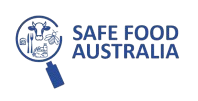Food safety auditing requirements
Food safety auditing
There are different requirements throughout Australia regarding food safety audits. Most states require licensed food businesses to implement a food safety program and have a food safety audit conducted to ensure compliance with the program.
New South Wales
In NSW licensed food businesses are required to have regular audits to demonstrate compliance with their food safety plan and any other requirements of the relevant food safety scheme set out in the Food Regulation.
Food businesses with a suitable audit and compliance history from the NSW Food Authority may choose to use a regulatory food safety auditor.
Safe Food Australia have third-party auditors approved by the Food Authority to conduct audits in the following areas;
- Facilities licensed to provide food to vulnerable persons (Aged care and hospitals)
- Cold food storage
- Dairy primary production
- Plant products
- Seafood processing
Facilities wishing to implement a Regulatory Food Safety Auditor System must meet the following conditions of approval;
- Have a satisfactory compliance history
- Have received either an A or B rating from its most recent audit
- Operate in an industry approved by the Food Authority to move to this system
- Operate at a risk level that has been approved by the Food Authority to move to this system & have no outstanding enforcement action
If you are interested in moving into the third-party audit system, we can assist you with the relevant information to make the move as smooth as possible.
Click on the following link to access the application to implement a regulatory food safety audit system.
Application To Implement Food Safety Audit System
One of the many benefits of moving across to the third-party audit system includes consistency in audits, especially if you have multiple sites.
Queensland
QLD local governments are responsible for licensing food businesses within their areas. Licensable food businesses must have an accredited food safety program if:
- The food business involves off-site catering
- The primary activity of the food business is on-site catering at the premises stated in the licence
- The primary activity of the food business is on-site catering at part of the premises stated in the licence to cater to 200 or more people on 12 or more occasions in any 12-month period
- The food business is carried on as part of the operations of a private hospital or otherwise processes or serves potentially hazardous food to six (6) or more vulnerable people (Aged Care, childcare and hospitals)
Prior to the accreditation of a food safety program by your local council you will need to provide written advice by an accredited auditor approved under the Food Act 2006, once accredited you must:
- Keep a copy of the accredited food safety program at the premises of the food business. This should be kept available for inspection by employees in the food business (either hard copy or the electronic form)
- Organise your first compliance audit within six (6) months of the food safety program being accredited. The audit must be conducted by an auditor approved under the Act
- Organise regular audits at the frequency specified by the local government that accredited the food safety program or within your local area
Contact us if you require information on.
- Approving your food safety program
- Developing a food safety program
- Auditing your food safety system
Victoria
In VIC, class 1 and 2 premises that have independent food safety programs are required to be audited at declared intervals by a department-approved food safety auditor who is certified as competent to conduct audits.
All class 1 facilities such as childcare centres, aged care facilities and hospitals must have an independent food safety program and must be audited annually.
Class 2 businesses that choose to develop their independent food safety program must also be audited annually or use the VIC health template.
Safe Food Australia has auditors that are accredited to conduct audits for the above-mentioned businesses. We can also develop food safety programs.
Please contact us to discuss your requirements.
Other States
We can provide training and internal audits in these states where the regulator conducts audits, to assist with compliance and the requirements of your food safety plan.
What to expect during an audit?
An opening meeting is conducted at the beginning of the audit with key personnel in attendance. During this meeting, we will address any corrective actions raised during the previous audit, ascertain the type of processes conducted on-site, review changes to products or processes, and other information.
The food safety plan must be available and on-site, the licence of the business current and correct for the type of business.
The food safety plan, monitoring records, and support programs will then be reviewed followed by a site inspection and observation of processing.
At the completion of the audit, an exit meeting would be conducted with key personnel and include the audit summary and result, corrective actions, and close-out times
